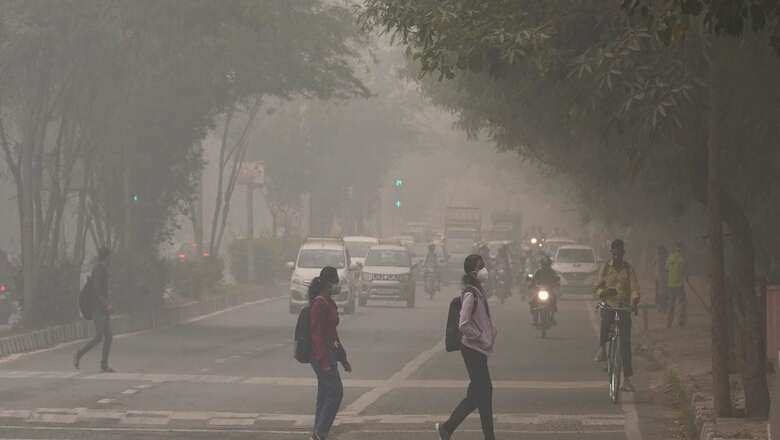
views
Air pollution is an ever-present environmental concern that affects individuals and communities worldwide. The release of pollutants from various sources, such as industrial processes, transportation, and natural factors, has given rise to a significant public health crisis. Dr. Anjali R Nath, Consultant Pulmonologist, SPARSH Hospital, and Dr. Akanksha Jha, Pulmonologist and General Practitioner, Apollo Clinic, shed light on the dire consequences of high air pollution on our health and offer valuable insights into mitigating its effects.
The Health Impacts of Air Pollution:
Dr Nath says, “Air pollution is not limited to respiratory problems; it can also lead to cardiovascular issues, including heart attacks and strokes. Furthermore, there is evidence of its adverse effects on mental health, as air pollution has been associated with cognitive decline and an increased risk of neurodegenerative diseases.” She explains the health effects of air pollution:
- Respiratory Problems:Prolonged exposure to polluted air can lead to a range of respiratory issues, including asthma, bronchitis, and other lung diseases. Particulate matter (PM) and ground-level ozone, common air pollutants, can penetrate deep into the respiratory system, causing inflammation and discomfort.
- Reduced Lung Function:Long-term exposure to air pollution has been linked to reduced lung function, making it harder for individuals to breathe efficiently and maintain their overall health.
- Increased Risk of Lung Cancer:Shockingly, high air pollution levels are associated with an increased risk of lung cancer, highlighting the grave consequences of long-term exposure to harmful pollutants.
- Cardiovascular Complications:Air pollution isn’t limited to respiratory problems alone; it can also contribute to cardiovascular issues, including heart attacks and strokes. The impact extends far beyond our lungs.
- Mental Health Concerns:Recent research has shown that air pollution can negatively affect mental health, leading to cognitive decline and an increased risk of neurodegenerative diseases.
- Vulnerable Populations:Children, the elderly, and individuals with pre-existing health conditions are particularly susceptible to the adverse health effects of high air pollution. Protecting their health should be a top priority.
Mitigating the Effects
Dr. Akanksha Jha offers practical solutions to combat the ill effects of air pollution:
- Timing Matters:Avoid outdoor activities during early mornings and late evenings when pollutant levels are at their peak. Instead, exercise during sunny afternoon hours when the air is clearer.
- Use Proper Masks:During high pollution periods, protect yourself with N95 or triple-layer surgical masks when going outdoors. Cloth masks are not as effective.
- Indoor Air Quality:Invest in air purifiers for your home to ensure the air you breathe indoors is clean and safe. Avoid using incense sticks and opt for wet mopping over dry dusting.
- Work from Home:If feasible, consider working from home to minimize exposure to polluted outdoor air and crowded areas.
- Stay Hydrated and Eat Antioxidant-Rich Foods:Staying well-hydrated and consuming antioxidant-rich foods like fruits and nuts can help your body combat the effects of air pollution.
Medication and Vaccination:
Patients with asthma and COPD should adhere to their prescribed inhalers and nebulizers. Additionally, it’s crucial for the elderly to receive recommended influenza and pneumonia vaccinations to bolster their immune system against respiratory infections.
Air pollution is a pervasive and menacing threat to our health. It not only affects our respiratory system but also poses risks to our cardiovascular health and mental well-being. Protecting the most vulnerable among us, such as children and the elderly, is paramount. By following the advice of experts like Dr. Anjali R Nath and Dr. Akanksha Jha, we can reduce our exposure to harmful pollutants and take significant steps toward safeguarding our health and the environment.
Mitigating the effects of air pollution requires collective efforts to reduce emissions, transition to cleaner energy sources, and improve air quality monitoring and regulation. Only through concerted action can we ensure a healthier and cleaner future for all.




















Comments
0 comment